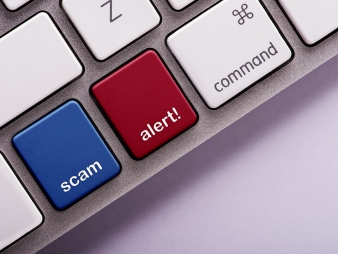Earlier this week the U.S. Department of Justice warned that the COVID-19 pandemic has led to a surge in Coronavirus-related scams.
Specifically, there have been reports of:
- Individuals and businesses selling fake cures for COVID-19 online and engaging in other forms of fraud, including offers for vaccinations and test kits.
- Phishing emails from entities posing as the World Health Organization or the Centers for Disease Control and Prevention.
- Phishing emails related to fake government stimulus checks.
- Malicious websites and apps that appear to share virus-related information to gain and lock access to your devices until payment is received.
- Individuals or entities seeking donations fraudulently for illegitimate or non-existent charitable organizations.
In addition, the number of Americans now working from home has also led to an increase in reports of cybercriminals posing as support personnel from the companies those organizations may be using to assist employees as they work remotely. These individuals will attempt to gain trust by reciting some of your personal information such as job titles, email addresses, and the like (much of which is readily available online) before offering to send you a link that contains “important information.” That “important information” is often malware.
Best practices to avoid becoming a victim of COVID-19 fraud include:
- Never provide your personal or work information to anyone over the phone or online unless you’re the one who initiated the contact.
- Do not click links on emails that appear to be fraudulent. Dead giveaways in spam or phishing emails include multiple grammar and spelling errors. In addition, no company or government entity will send you an email from a public domain such as Gmail. Look at the extension following the “@” symbol in the “From” line and make sure it is coming from a legitimate company or government domain. Suspicious emails will also convey a sense of urgency, i.e. you “must respond quickly” or “act fast.”
USA.gov includes a page on common scams and frauds, including a new section on COVID-19 scams. The site also includes information on where to report fraudulent activity should you be targeted.
Protecting yourself, your employees, and your business against COVID-19 fraud adds another level of complexity to this uncertain time. We remain available to assist our clients with these issues.


